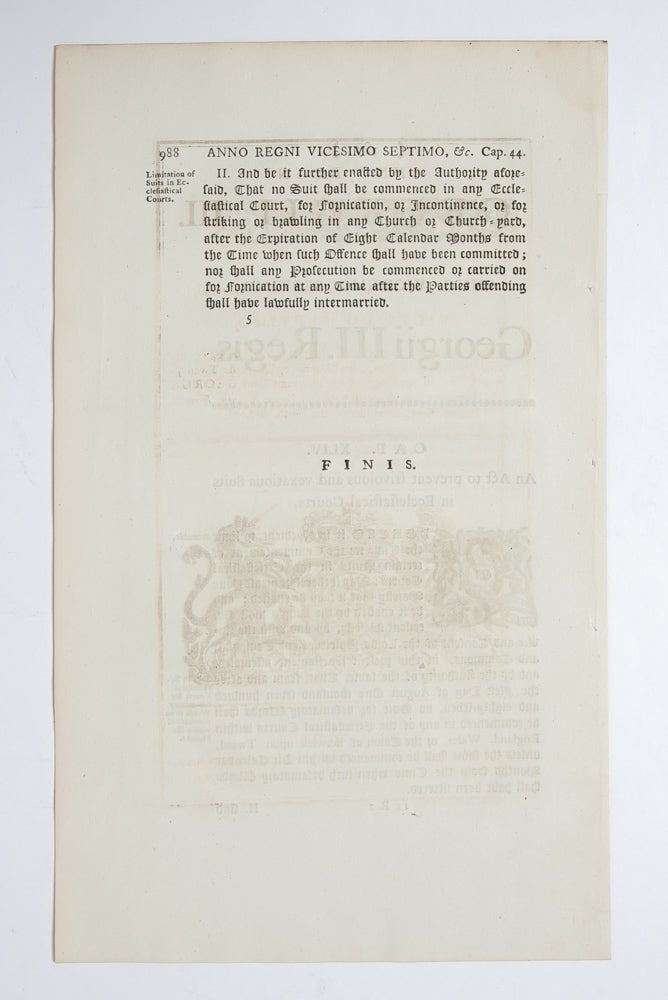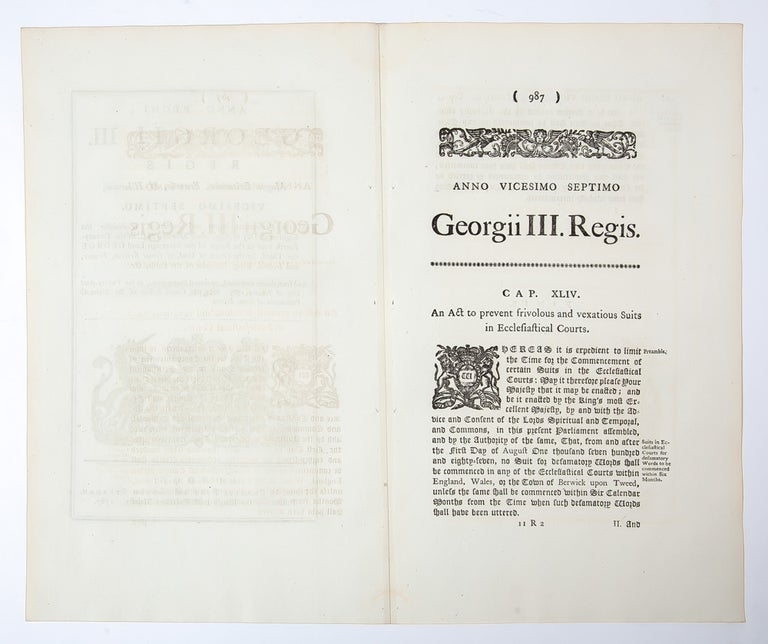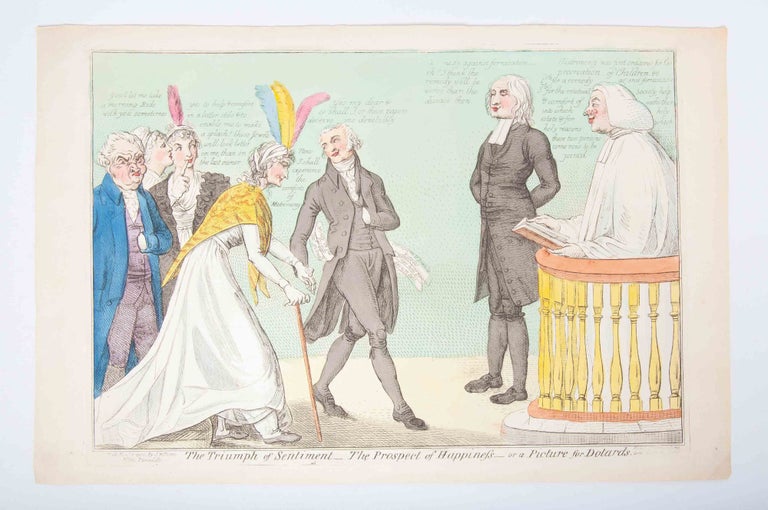An Act to Prevent Frivolous and Vexatious Suits in Ecclesiastical Courts
London: Charles Eyre & Andrew Strahan, 1787.


An Act to Prevent Frivolous and Vexatious Suits in Ecclesiastical Courts
London: Charles Eyre & Andrew Strahan, 1787. First edition. 27 George III, Chapter 44. A Fine copy measuring 310 x 190mm and collating complete: [2], 987-988. A scarce and important piece of legal history, which ESTC records at only one library (Lincoln's Inn) and which does not appear in the modern auction record. The present is the only example on the market.
At the start of the Restoration, "English church courts were revived by an act of Parliament on 27 July 1661 to resume their traditional task of correcting spiritual and moral misdemeanors. Soon thereafter, parishioners across England's dioceses once more faced admonition, fines, excommunication, and even imprisonment if they failed to conform to the laws of the restored Church of England" (Aklund). As much as these courts sought to reestablish a monolithic Anglican communal identity during Charles II's reign, their position in the 18th century became "a case study in the secularization of the legal system" particularly given their theoretical justification based in the problematic concept of divine right (Harris). Numerous acts, the present example among them, "represented an important step in the direction of limiting the reach of of ecclesiastical jurisdiction" (Harris).
An Act to Prevent Frivolous and Vexatious Suits in Ecclesiastical Courts was passed in 1787, drawn from a bill presented in Parliament the previous year. Its major accomplishment was the removal of Church authority in the regulation of private sexual behaviors: "It shall be further enacted by the Authority aforesaid That no Suit shall be commenced in any Ecclesiastical Court for Fornication, or Incontinence, of for any striking or brawling." While the Church may have voiced its moral codes or enacted social shaming within its own communities, it no longer had the legal authority to regulate or punish sexual behavior. Such secularization had significant benefits across a number of communities. For survivors of assault, it ended the Church's ability to mandate that a woman marry her attacker; for queer communities it prevented Biblically based persecution; for sex workers it took away the risk of arrest or fines for conducting their livelihoods. Ultimately, the jurisdiction of ecclesiastical courts over sexual behavior (whether in the form of obscene or defamatory words, sexual engagement and sensual pleasure) was terminated by this act. Little to no legal regulation of sex would be enacted until the next century, when the 1861 Offences Against the Person Act and a series of Contagious Diseases Acts would seek to give secular courts more control over individuals' bodies.
ESTC N58717. (Item #5031)



